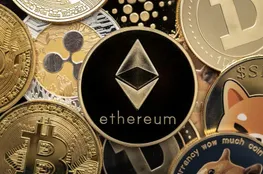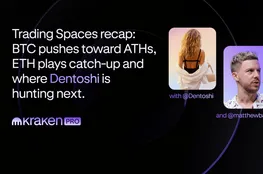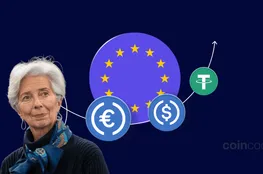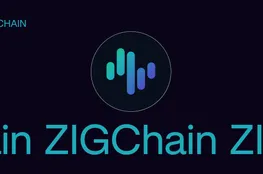Trump’s Crypto Exit: Family Sells Off World Liberty Financial Shares
President Trump’s family has significantly reduced its stake in World Liberty Financial (WLFI), a cryptocurrency platform, since December 2024, raising questions about potential conflicts of interest and the evolving regulatory landscape of the digital asset space. The reduction, totaling up to 20 percent, underscores a strategic shift within the family’s investment portfolio and highlights the increasing scrutiny surrounding President Trump’s involvement in the burgeoning crypto industry. Initial reports indicate that by January, the family’s ownership had decreased to 60 percent, and following a transaction on June 8th, it dropped further to 40 percent. This movement represents a notable change in the family’s financial commitment to WLFI, a platform that had previously garnered considerable attention and investment.
Forbes analysts meticulously examined the deal, concluding that the Trump family could have potentially realized millions of dollars in profits through the sale. However, the precise amount of revenue generated remains shrouded in secrecy, as World Liberty Financial has consistently avoided disclosing detailed financial information regarding the transaction. This lack of transparency fuels speculation and further intensifies the debate surrounding the family’s motives and the company’s overall financial performance. The reduction in stake coincides with a period of heightened legislative activity concerning cryptocurrency regulation, adding another layer of complexity to the situation. The decreasing ownership percentage suggests a calculated move to distance themselves from the company as regulations tighten and public perception shifts.
Congress Demands Investigations
The family’s strategic divestment has prompted significant pressure from U.S. lawmakers, demanding a thorough investigation into President Trump’s connections to the crypto industry. Members of Congress view these ties as a potential conflict of interest, particularly given the timing of the family’s actions relative to the passage of the GENIUS Act, which aims to regulate payment stablecoins. The Senate’s approval of the GENIUS Act last week, supported by both Democrats and Republicans, is now facing potential hurdles in the House of Representatives due to Trump’s continued involvement with WLFI. The President addressed Congress members via social media on Wednesday night, urging them to pass the legislation “as soon as possible,” further demonstrating his active engagement and influence within the debate.
Millions of Dollars in Revenue
World Liberty Financial experienced substantial growth, raising approximately $550 million through two public token sales by March of this year. Notably, President Trump himself personally generated over $57 million from the company by June, a surprising return considering his previous skepticism towards cryptocurrencies. This financial success underscores the potential profitability of the venture, even amidst growing regulatory concerns. The company's progress was further bolstered by a significant announcement in May, where a firm from Abu Dhabi revealed plans to utilize the platform's USD1 stablecoin for investments totaling $2 billion within the Binance ecosystem. The scale of these operations – representing a major influx of capital – raises pertinent questions regarding potential conflicts of interest and the company’s operational oversight. Despite the impressive figures, the opacity surrounding the financial details continues to generate controversy and fuel criticism.
Critics highlight a critical contradiction: the President is actively shaping cryptocurrency policy while simultaneously benefiting financially from his own crypto business. This dynamic creates a significant ethical dilemma and raises questions about the impartiality of the regulatory process. Conversely, supporters argue that Trump is acting in the best interests of the entire industry, promoting innovation and investment rather than solely pursuing personal gain. The situation is complex, demanding careful consideration of both the potential benefits and inherent risks associated with the family’s involvement.
The facts are clear: the President’s family is strategically reducing its stake in the cryptocurrency platform as industry regulation advances through Congress. This move reflects a broader trend of institutional investors distancing themselves from volatile crypto assets and a growing awareness of the regulatory challenges facing the sector. The continued scrutiny and legislative activity surrounding WLFI and the broader cryptocurrency market will undoubtedly shape the future of digital assets and the role of prominent figures within this rapidly evolving landscape. Further investigation into the company’s operations, financial transactions, and relationships with key stakeholders is crucial to understanding the full scope of this complex and potentially impactful situation. The evolution of the industry and the ongoing legislative efforts will determine the long-term viability and success of World Liberty Financial and other cryptocurrency ventures.
eToRo: Best platform for beginners and social trading Trade cryptocurrencies, stocks, ETFs, and commodities on one easy-to-use platform Follow and copy top-performing traders with eToro’s unique social trading tools Earn passive income with staking on popular coins like ETH, ADA, and TRX Fully regulated in multiple jurisdictions with strong security protocols 0% commission on real stock trading and competitive spreads on crypto 30+ million registered users across 100+ countries Get Started on eToroeToro is a multi-asset investment platform. The value of your investments may go up or down. Your capital is at risk. Don’t invest unless you’re prepared to lose all the money you invest. This is a high-risk investment and you should not expect to be protected if something goes wrong.
























